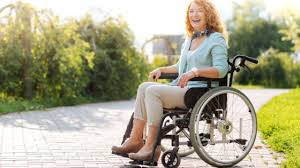There are many psychological and social effects of diminished mobility, from the difficulty of getting up and down from a chair to reduced or impossible independence. This type of physical impairment can be devastating, causing depression and increased anxiety. If you notice changes in your mood or irritability, it may be time to seek medical attention. It’s important to talk to your doctor to determine if depression is the issue. There are many ways to cope with a loss of mobility, including learning to accept and embrace your new life. For advice about WAV Vehicles to help regain some independence, go to clarkemobility.com
The physical domain of mobility involves several elements, including gait, strength and coordination, and balance. During the aging process, people tend to lose muscle mass and joint flexibility. However, it is possible to compensate for this natural loss through physical rehabilitation. The specialised services provided by rehabilitation clinics, occupational therapy, and mobility medical equipment can help a person deal with the emotional and physical effects of an injury or illness.
The fear of falling is normal. However, excessive fear can reduce mobility, increasing the risk of a fall. To overcome this fear, social interaction or an exercise programme may help. Social contact may also prove to be helpful. In addition to socialisation, exercise is an important part of the care plan. The more active a person can be, the better for their strength and coordination, even if they need to rely on mobility equipment to be active.






Leave a Reply